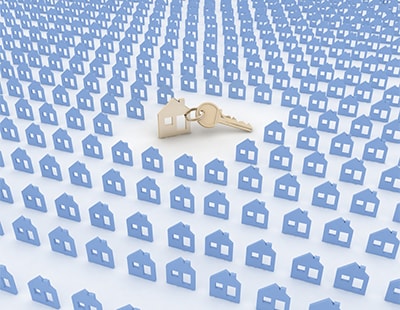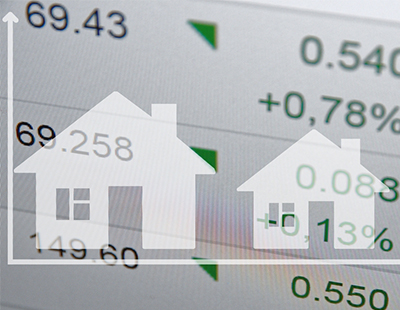Estate agents say the continuing gentle slowdown reflected in the latest government house price figures will be the story of the market for the rest of 2018.
The UK House Price Index shows average house prices in the UK have increased 3.1 per cent in the year to July 2018.
Although this is down slightly from 3.2 per cent in the year to June, and represents the lowest UK annual rate since mid-2013, the figures nonetheless show sustainable price growth, and even London prices increased 0.6 per cent over the month of July after a sustained period of falls.
However, even with July’s rise taken into account, house prices in London fell by 0.7 per cent over the year as a whole - their biggest tumble for nine years.
Nonetheless, agents were broadly content with the data, released jointly by the Office for National Statistics, the Land Registry and other regional government bodies.
Jackson-Stops’ chairman Nick Leeming says: “The small price dips felt across the breadth of the UK last month seem to have just been a summer blip, with the majority of regions, including London, experiencing monthly increases of up to 3.4 per cent.”
Guy Bradshaw of UK Sotheby’s International Realty, active in the prime London market, says: “In recent months we have seen a flurry of activity in the prime central London market, with new listings and buyers looking to purchase. Reflecting this, the borough of Kensington and Chelsea bucked the trend in July [according to these new figures] by showing an annual price increase of 9.2 per cent, following a decrease in June of 13.9 per cent.
“Over the summer we have seen a great deal of noise around Brexit and the implications of a ‘no deal’ scenario on the British economy. Naturally, London often bears the brunt of ripples in confidence and the figures highlight this, showing a small year on year price decrease in the capital. Despite this, London holds an enduring appeal” he adds.
Jeremy Leaf, north London estate agent and a former RICS residential chairman, says the figures are a snapshot of the market towards the end of summer but - since then - “there has been a little more enthusiasm to sell homes than we have seen for a while.”
However, he cautions that it is still hard to gain commitment from buyers and he suggests it is unlikely that the rest of the year will see any significant change.
Meanwhile Russell Quirk, chief executive on Emoov, is more optimistic and says: “The market has firmly found its feet and is registering strong annual and monthly price growth. This is even more notable given the seasonality that often plagues market activity during this time with home sales often taking a back seat. Even the London market has dusted itself down to register positive monthly growth and is the only region to see prices remain lower than this time last year.
“The continued affordability of mortgage rates and the stranglehold of housing stock failing to meet demand will ensure that prices continue to climb as we see out the year.”
The government figures - yesterday declared an official ‘statistic’ by the government, which says the UK HPI is the most accurate of all the various house prices measures - show that house prices nationally increased by 3.1 per cent in the year to the end of July.
This takes the average UK house price to £231,000.
The HPI says the slowdown in growth over the past two years has been driven mainly by weaker regional performances in the south and east of England, and London.
Within England, the north west showed the highest annual growth, with prices increasing by 5.6 per cent in the year to July, followed by the south west and West Midlands, both on 4.4 per cent.

























Join the conversation
Jump to latest comment and add your reply
It is so obvious to see why housing markets have taken more of a hit in the south than the midlands and the north and that is because of the amount of tax SDLT you will pay. Property prices are higher in the south and this tax is stiffling the market. As Boris Johnson recently said, these tax levels are absurb and he is right. They say we need more new homes, this tax on homes does not make it easier to sell them. So developers are hesitant and i don't blame them. The Govt is always behind the curve but will eventually see how it has hamstrung this so important of markets, just may take another year or so for it to understand this. I say halve SDLT.
Please login to comment